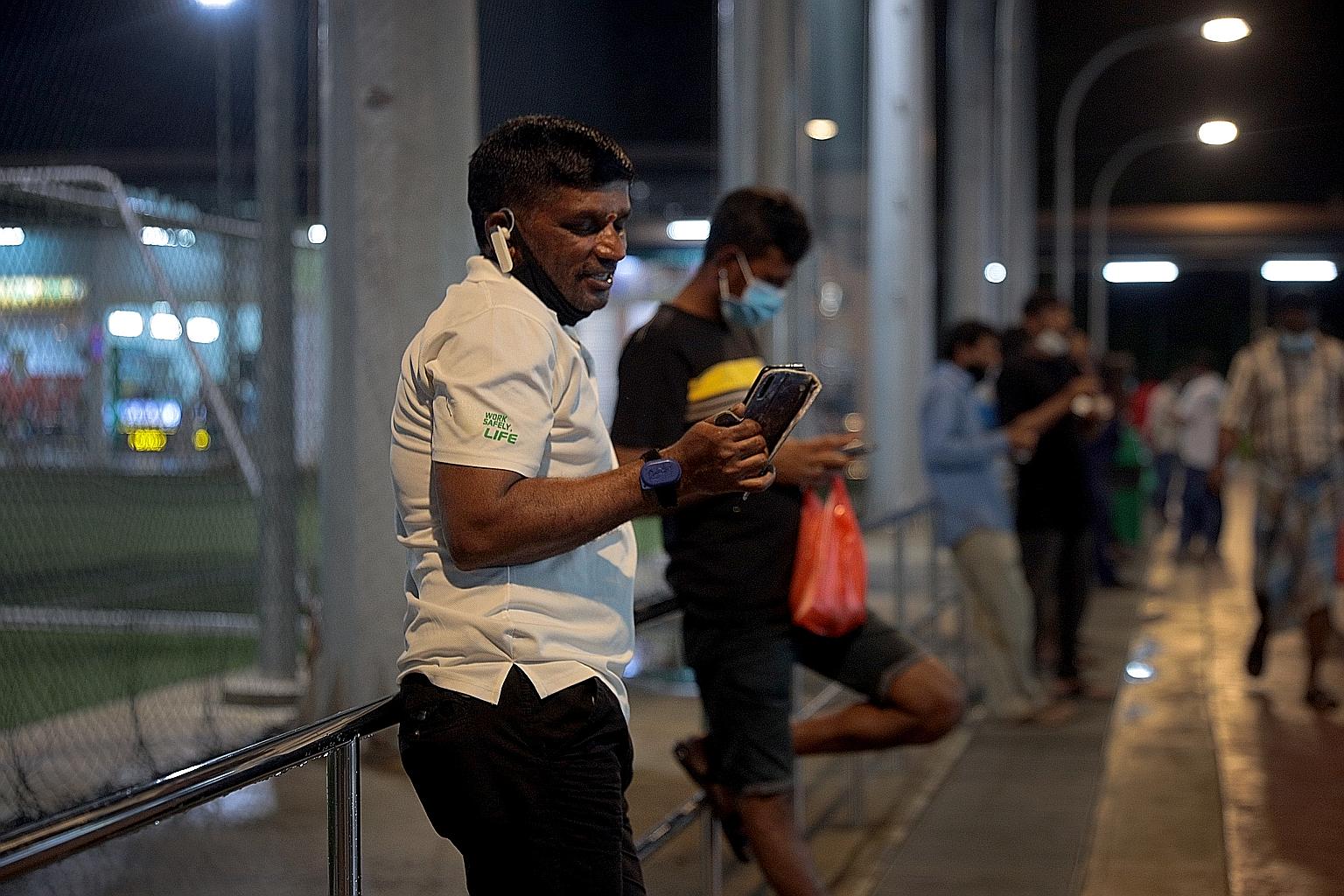Coronavirus Singapore
New medical network tailored for migrant workers' needs
Aim is to ensure appropriate care for workers without overtaxing national healthcare system
Sign up now: Get ST's newsletters delivered to your inbox

Migrant workers at Terusan Recreation Centre in Jalan Papan in April. Under the new medical system, each geographical sector will be anchored by a regional medical centre and complemented by on-site medical centres in large dorms and mobile clinical teams.
ST PHOTO: JASON QUAH
Follow topic:
A new network of medical centres being set up for migrant workers here will be tailored to meet their medical needs, including their psychological and mental well-being, Manpower Minister Tan See Leng said yesterday.
The aim is to provide workers with appropriate care without overtaxing the national healthcare system, he said at a media briefing.
This came after The Straits Times reported on Tuesday that the Ministry of Manpower (MOM) had put out a tender seeking proposals for anchor operators to run six regional medical centres, and three on-site medical centres in large dormitories, that cater exclusively to migrant workers here.
Under the new system, expected to be rolled out as early as November, healthcare will be delivered in six geographical sectors that each house at least 40,000 migrant workers.
Each sector will be anchored by a regional centre and complemented by the on-site centres, at least two mobile clinical teams, and round-the-clock telemedicine consultations and ambulance and special transport services.
Dr Tan described this as a hub-and-spoke model. The nine centres will succeed 13 existing centres that have been up and running since last August.
While there will be fewer medical centres in future, their scale and comprehensiveness will be significantly greater than what exists today, Dr Tan said.
For example, they could have built-in facilities such as a physiotherapy centre.
Dr Tan said it is also important that the cost of primary care is kept sustainable for workers, employers and the Government.
The medical centres will charge for services provided to cover their set-up and operating costs, according to the tender documents.
Several suggestions for operators were outlined by MOM to keep migrant workers' out-of-pocket expenses low, while ensuring business sustainability.
Dr Tan said it is too early to say if any fee benchmarks will be set. "We're going out there to do a price discovery as well."
Dr Lam Meng Chon, medical director of MOM's Assurance, Care and Engagement Group, said the centres will complement rather than replace or duplicate existing primary care services.
Workers will be automatically enrolled, and each centre's operator will maintain a registry of the workers in its care and ensure there is a single clinical record for workers throughout their care journey.
Healthcare should also be provided in a way that minimises any cultural and language barriers, Dr Lam said. This could include having on-site conditionally registered doctors or healthcare associates from workers' home countries.
Dr Lam said the healthcare associates will be supervised by registered medical practitioners and will "focus on clinical care, like health education, basic infection prevention control measures, management of chronic diseases".
These associates are not meant to replace medical professionals here, but will help with the psychological needs of migrant workers, said Dr Tan. "I think it's important for them to have someone whom they feel comfortable with," he said.

